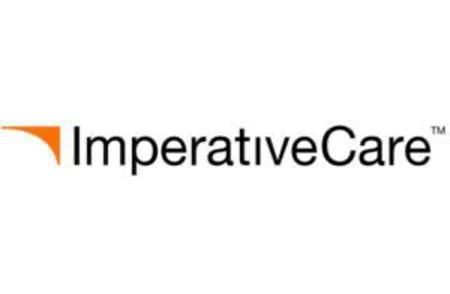Imperative Care begins first-in-human study of neurovascular stent
December 18, 2023
Source: drugdu
 401
401
BY SEAN WHOOLEY
 Imperative Care announced today that it initiated a first-in-human clinical study for its novel neurovascular stent system.
Imperative Care announced today that it initiated a first-in-human clinical study for its novel neurovascular stent system.
Campbell, California-based Imperative Care designed the system to only require single antiplatelet therapy for patients undergoing stent-assisted treatment of wide-neck intracranial aneurysms.
Dr. Nobuyuki Sakai successfully treated the first three patients enrolled in the study. Sakai serves as director of neurosurgery at the Kobe City Medical Center General Hospital in Kobe City, Hyogo, Japan. All three patients underwent planned procedures for stent-assisted coiling of unruptured aneurysms.
Imperative Care reported all three patient discharges from the hospital within 48 hours on an aspirin-only antiplatelet regimen. The company reported no device- or procedure-related complications, including clot formation.
“The ability for neurovascular implants to avoid dual antiplatelet drug therapy, which carries the risk of serious bleeding complications, will be an important step forward,” said Sakai said in a news release. “I am encouraged by these positive early results with Imperative Care’s innovative stent technology and look forward to future investigations in a wide range of patients, including those with ruptured aneurysms.”
More about the Imperative Care neurovascular stent system
Imperative Care developed the system as a coated, low-profile nitinol scaffold. The stent features a hemodynamically optimized nitinol architecture. Its proprietary coating naturally resists clot formation. The company designed it as a platform technology with a range of vascular applications in mind.
Its clinical development program’s initial focus centers around neurovascular disorders, starting with wide-neck aneurysms. The company plans to investigate versions of the stent for a wider scope of hemorrhagic and ischemic stroke-related conditions.
Dr. Aquilla Turk, Imperative Care’s chief medical officer, calls a single antiplatelet stent a “game changer” in neurointerventional surgery. Turk said the platform technology could provide improved safety and broad applications in neurovascular disorders.
Fred Khosravi, chair and CEO of Imperative Care, says he sees “a great deal more work” needed to bring the stent to patients. However, he said the company remains “deeply committed” to making the technology a “major force” in neurovascular treatments. Koshravi also sees contributions in other targets within the vascular system with the stent.
Read more on
- The first subject has been dosed in the Phase I clinical trial of Yuandong Bio’s EP-0210 monoclonal antibody injection. February 10, 2026
- Clinical trial of recombinant herpes zoster ZFA01 adjuvant vaccine (CHO cells) approved February 10, 2026
- Heyu Pharmaceuticals’ FGFR4 inhibitor ipagoglottinib has received Fast Track designation from the FDA for the treatment of advanced HCC patients with FGF19 overexpression who have been treated with ICIs and mTKIs. February 10, 2026
- Sanofi’s “Rilzabrutinib” has been recognized as a Breakthrough Therapy in the United States and an Orphan Drug in Japan, and has applied for marketing approval in China. February 10, 2026
- Domestically developed blockbuster ADC approved for new indication February 10, 2026
your submission has already been received.
OK
Subscribe
Please enter a valid Email address!
Submit
The most relevant industry news & insight will be sent to you every two weeks.



